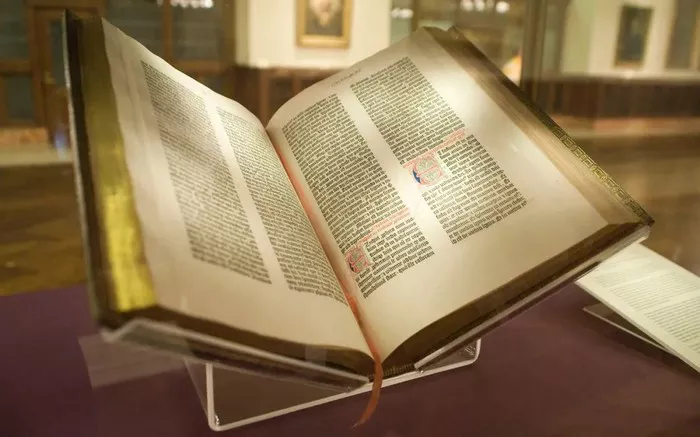The Bible, a cornerstone of Christian faith, is a collection of sacred texts revered by various denominations. Within the vast Christian landscape, the Catholic Church has a distinctive approach to the Scriptures. This article delves into the question, “Which Bible do Catholics use?” to provide insights into the unique features of the Catholic Bible, its history, and the significance it holds within the Catholic tradition.
The Canon of the Catholic Bible
The term “canon” refers to the authoritative list of books considered sacred and inspired by a religious community. The Catholic Bible consists of both the Old and New Testaments, and its canon differs from that of other Christian denominations. The Old Testament includes books not found in Protestant Bibles, collectively known as the Deuterocanonical books. These additions, such as Tobit, Judith, Wisdom, Sirach, Baruch, and First and Second Maccabees, have been a subject of historical and theological discussions between Catholic and Protestant scholars.
The New Testament, shared among most Christian denominations, comprises the life, teachings, death, and resurrection of Jesus Christ. Catholic and Protestant New Testaments share the same 27 books, including the four Gospels, Acts of the Apostles, Pauline and General Epistles, and the Book of Revelation.
The Latin Vulgate and the Councils of Hippo and Carthage
The early Christian Church faced challenges in determining the authoritative texts for worship and doctrine. The Latin Vulgate, translated by St. Jerome in the late fourth century, played a pivotal role in shaping the Catholic Bible. Commissioned by Pope Damasus I, St. Jerome’s translation became the standard Latin text for the Western Church.
In the late fourth and early fifth centuries, the Councils of Hippo (393 AD) and Carthage (397 AD) formally recognized the canonical books of the Bible, endorsing the Latin Vulgate. These councils aimed to address the uncertainty surrounding the biblical canon and establish a uniform list of sacred texts for the Western Church.
The Impact of the Protestant Reformation
The 16th-century Protestant Reformation led by Martin Luther brought about significant changes in the Christian landscape. One of Luther’s key reforms was challenging the inclusion of the Deuterocanonical books in the Old Testament. This divergence in the Old Testament canon remains a defining difference between Catholic and Protestant Bibles.
The Council of Trent (1545-1563), convened in response to the Reformation, reaffirmed the authority of the Latin Vulgate and officially declared the Deuterocanonical books as part of the Catholic canon. This decision solidified the distinction between Catholic and Protestant Bibles, emphasizing the importance of tradition in interpreting and preserving the Scriptures within the Catholic Church.
Translations and Editions of the Catholic Bible
The Catholic Church acknowledges the need for accessibility to the Scriptures in various languages, leading to numerous translations of the Bible. While the Latin Vulgate remains a reference point, translations into vernacular languages allow Catholics worldwide to engage with the Word of God in their native tongues.
Prominent translations include the Douay-Rheims Bible, an English translation completed in the 17th century, and the Revised Standard Version Catholic Edition (RSV-CE), a modern translation that gained approval from the United States Conference of Catholic Bishops. Additionally, the New American Bible (NAB) serves as the official English translation for liturgical use in the United States.
Liturgical Use and Lectionaries
The Catholic Church places a strong emphasis on the liturgical use of the Bible. The Lectionary, a prescribed selection of Scripture readings for worship, ensures that Catholics encounter a variety of biblical passages throughout the liturgical year. The Lectionary follows a three-year cycle for Sundays and a two-year cycle for weekdays, incorporating readings from the Old Testament, Psalms, Epistles, and Gospels.
The liturgical focus on the Scriptures underscores their significance in the Catholic faith and encourages believers to explore the richness of the Bible in the context of communal worship.
Challenges and Controversies in Biblical Interpretation
The interpretation of Scripture has been a source of both unity and division within the Catholic Church. While the Magisterium, the teaching authority of the Church, provides guidance on doctrinal matters, debates and differing interpretations persist among theologians and scholars.
Issues such as biblical inerrancy, historical context, and the relationship between faith and reason continue to be subjects of discussion. The Catholic Church encourages a balanced approach that recognizes the importance of both sacred tradition and scholarly insights in understanding the Scriptures.
The Bible in Catholic Education and Catechesis
Catholic education places a strong emphasis on the study and understanding of the Bible. Catechesis, the systematic instruction of the principles of the Christian faith, includes the exploration of biblical narratives, teachings, and themes. Catholic schools, parishes, and religious education programs incorporate the Bible as a central element in shaping the faith formation of believers.
Understanding the role of the Bible in Catholic education provides a deeper insight into how the Church fosters a holistic approach to faith that encompasses both intellectual understanding and spiritual growth.
Conclusion
In conclusion, the question of which Bible Catholics use leads us on a journey through centuries of tradition, councils, and theological developments. The Catholic Bible, rooted in the Latin Vulgate and affirmed by the Council of Trent, stands as a testament to the Church’s commitment to preserving and proclaiming the Word of God.
The richness of the Catholic tradition in engaging with the Scriptures, coupled with a diversity of translations and a liturgical emphasis on communal worship, highlights the dynamic relationship between the faithful and the Word of God. As Catholics continue to navigate the complexities of biblical interpretation, the enduring presence of the Bible in education, liturgy, and personal devotion remains a cornerstone of the Catholic faith.


